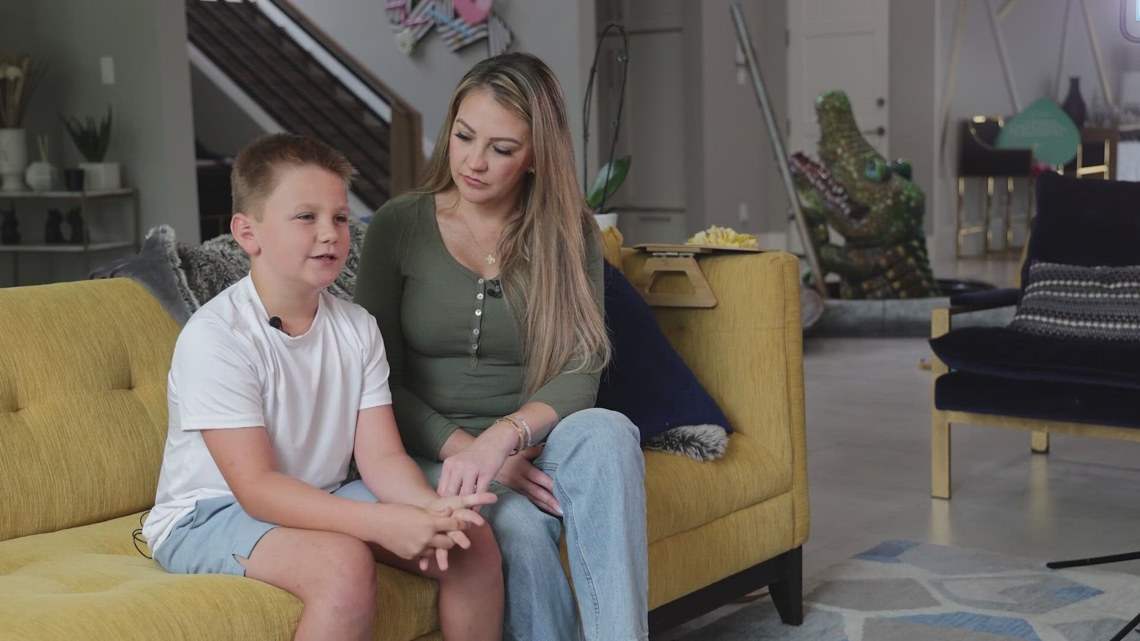
A month after deadly Texas floods, a Houston mom shared how her sons survived — and how their family is still fighting to heal, one day at a time.
HOUSTON — One month after a devastating July Fourth storm turned the Texas Hill Country into a deadly flood zone, families are still grappling with the aftermath. For one Houston mother, the nightmare hasn’t ended — it’s only changed shape.
At the center of her story are her two sons — brothers who survived the unthinkable at Camp La Junta, just outside Hunt, Texas. Braeden, 9, still remembers the terror.
“I remember just hearing screaming coming from outside, all the kids in the other cabins, and the flooding,” he said. “I remember like yesterday.”
Their mother, Keli Rabon, a former investigative reporter, recalled the moment she finally held them again — alive.
“I hugged them as hard as I could while juggling gratitude, guilt and grief,” Rabon said.
But the emotional toll has been heavy. Rabon admits she’s just starting to understand the depth of their trauma.
“I’m learning a whole lot about trauma,” she shared. “Now I’m in the crying stage, especially when I went back to Kerr County.”
Last week, Rabon returned to Camp La Junta to see it for herself — the place her sons barely escaped from.
“There’s no video or photo that can fully capture what it looked like there,” Rabon said.
She took her family’s story to Kerrville, speaking at a special session legislative hearing to demand answers and accountability.
RELATED: Texas lawmakers hear heartbreaking testimony about this Hill Country community’s flood response
“For our family, the storm is not over,” she told lawmakers. “Brock scans every room for higher ground, checks the weather constantly and battles nightmares of water dripping from the ceiling.”
Back home in Houston, she holds onto one small but powerful reminder of the chaos: a mangled piece of her son Brock’s camp trunk, found a mile from where it was last seen.
“It’s just something from our ‘before’,” Rabon said.
Now, that “before” and “after” divide their lives. Rabon says healing is slow — and incomplete.
“It’s going to take a really long time to heal and recover from this,” she said.
It’s been 31 days since the tragedy, but Rabon said there’s still much more work to be done.
“While there was a state public hearing, it remains to be seen if we were actually heard,” Rabon said. “This was a natural disaster, but it had a lot of man-made errors that made it worse.”
Rabon is asking lawmakers to make mental health care a centrally funded part of the state’s official disaster response. She says they struggled getting help and access to resources since they don’t live in the disaster zone. She says families should have access no matter what part of the state they live in.
